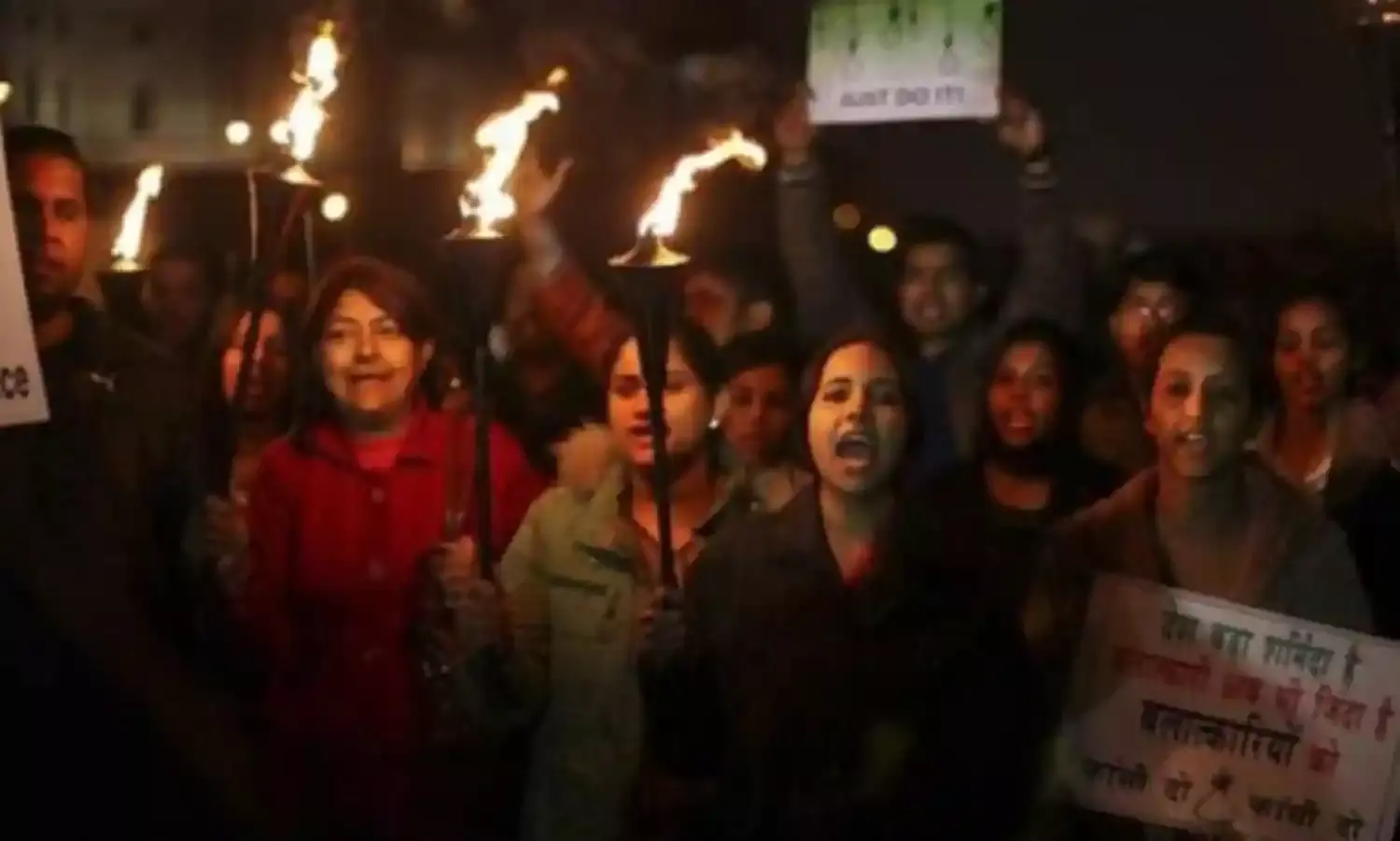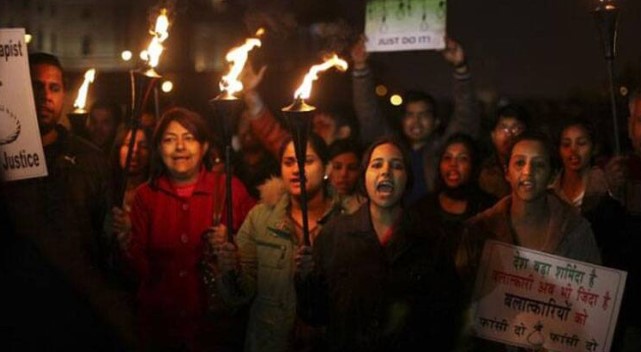Risk of Bias in Criminalising Marital Rape?
Discounting the real experiences of women

The Delhi High Court on May 11, failed to criminalise marital rape in India, in a split verdict from a two judge Bench, the matter is still awaiting resolution. This, after hearing a batch of petitions calling for the criminalisation of marital rape in India.
In the verdict, one of the judges held that forced sex between a husband and wife is violative of Article 14 and hence unconstitutional. Many countries recognise this as an “aggravated circumstance” since non-consensual intercourse is not only an act of violence, but is a breach of trust between a married couple. However, the second judge on the Bench disagreed with this, and called the exception to marital rape in the law, ‘reasonable’.
Divya Srinivasan, Legal Advisor at Equality Now, an NGO dedicated to the protection of human rights of women and children says, “a law like this doesn’t really belong in a democracy. We are even lagging behind our neighbouring countries,” she cited the case of Malaysia, which criminalised marital rape in the country, last year.
However, the issue is yet to be featured significantly on a political stage. “While individual politicians have made statements, and there was a Bill in Parliament, but that is as far as it has gone,” said Srinivasan adding, that this isn’t a specifically rural or urban issue, “it is prevalent all over the country. As of now, if a woman is subjected to marital rape, she cannot go to the police, because it is not recognised under Indian law!” She goes on to say that even the statistics for spousal violence released by the National Family Health Survey “are based on interactions held in a confidential mechanism” where there is a conversation, and the woman self-reports on certain conditions of anonymity.
Exception 2 of Section 375 as per the Indian Penal Code, decriminalises marital rape, and holds that sexual intercourse between a man and a woman in marriage cannot be considered rape. The Bench of Justice Rajiv Shakdher and Justice Hari Shankar, delivered a split verdict on Wednesday May 11, with Shakdher backing criminalisation of marital rape and Hari Shankar standing by the contrary.
“When it comes to the criminal justice system, instances of sexual violence go underreported in almost all cases,” Srinivasan told The Citizen. She says that the allowance of marital rape is the remnant of a colonial era law, “Which sends a broader signal that women are subordinate to men in a marriage. And the man has a right to be violent with impunity.”
Crimnalisisng marital rape, in Srinivasan’s opinion would certainly be a first step for women, “given that society still has it’s stigmas and prejudices.” And the only way to combat that, she says, “is through awareness and education.”
On Justice Hari Shankar’s verdict, Srinivasan is of the opinion that it is “extremely problematic,” since it burdens married women with the expectation of sex. “What about abuse changes if the person is a husband?” she asks. In 2017, the Indian government in an affidavit to the courts had stated that criminalising marital rape may make for “an easy tool for harrassing husbands.”
“This is an argument we have seen many times,” Srinivasan told The Citizen. “With domestic abuse and dowry cases, and with many gender related issues. It is an extremely overblown argument which encourages social stigma and is a result of an unfriendly criminal justice system.”
“By using this argument we are discounting the real experiences of women,” she says. Srinivasan takes the example of the Karnataka judgement and wishes that other courts would follow that lead. Earlier this year, the Karnataka court refused to dismiss rape charges filed by a woman against her husband, despite the exception to the law, with the Judge stating that, “a brutal act of sexual assault on the wife, against her consent, albeit by the husband, cannot but be termed rape.”
According to Srinivasan, the conversation of abuse and consent has to start quite early in a person’s life, “there should be sexuality education in schools, ‘what is consent’ should be taught at a young age. Otherwise you can get socialised to a point where you think violence is okay.” She says that with this particular split verdict, the case may either go to the Supreme Court, which is likely, or may be handed over to a three judge bench in a Delhi High Court.
Debarati Halder, Founding Secretary, South Asian Society of Criminology &Victimology and a decorated Professor of Law, throws light on the larger implications of implementing a marital rape law in India. “In many Asian countries, marital rape is not recognised. Whereas in other places, including a few African countries also, they recognise marital rape,” says Halder.
Elaborating on the skewed understanding of marital relationships and the consequent expectations, she says, “the understanding is that marriage is a package where everything will come together. So these social unions or customised unions are generally done for procreation and the growth of the family… When a person gets married, the implied understanding is that it is for this reason only that the man and women have gotten married.” She acknowledges that a mindset like this perpetuates the notion that women lose a few of their rights once they get into a marital relationship.
Halder points out that in many cases with pregnant women or new mothers, they are coerced into sexual intercourse even when their bodies cannot physically handle such an act. “So in these cases, a criminalisation of marital rape will definitely be good for women.” However, she is also of the opinion that much like IPC 498A which criminalises domestic violence against women, criminalising marital rape can also be used as a “blunt weapon in the hands of women.”
“We have seen earlier that 498A has been misused, and not only against the husband but against the in-laws as well.” Halder stresses that the law must be implemented and cases investigated in such a way that it does not create a segway for wrongfully accusing men, and their families, as such cases are also fairly prevalent. She suggests that the investigations be carried out in such a way that it gives importance to the victim, and not one gender over another, although the current law for marital rape has been considered patriarchal in nature.
“The Court cannot enter into the bedroom of any couple to check whether it is true if the woman has given consent or not, so everything has to be evidence based… Also what needs to be considered is the previous, present and post conditions, where the woman had denied consent. Everything has to be checked.”
A block in the reporting and consequent penalising of perpetrators of marital rape is the social stigma attached. “In 99% of the cases, women have a fear that if they deny their partner, they will not get to visit their parental house, or not be given money for their essentials. If you compare this understanding with that in many other countries, you will see that there women are empowered to say ‘no’,” says Halder.
“But when you consider that aspect, you also have to see what the majority of women are saying. You’d get to see that the majority of the women (even if marital rape is criminalised) will not come forward to use this as a weapon. Because in India you will not get to see that women will want to break their families just on the basis of this. There are many other things also that the woman has to consider. So these things also have to be seen.”
According to Halder, laws on sexual violence in India are already flawed, “our laws do not basically acknowledge rape of men, and obviously there are sexual abuses on men also by women… But again I would say, considering the fact that women are being abused largely, this law would be a boon for women at large. As I stated, it needs to be implemented in a careful way.”
She says that in her opinion, what Judge Hari Shankar meant to convey in his verdict, is that marital institutions cannot be without any sexual relations, “but what needs to be understood is that there is a difference between rape and a sexual relationship.”
Halder explains that despite the possibility of a comprehensive law coming in, what is of higher importance is creating awareness amongst women and in society. “There can be a good law, there can be a good discussion about this law. But the thing is that we have to empower the women to come and report these. If this fortunately becomes a law, it will be used by a very limited number of women, who would already be empowered and educated, because this is such a hush-hush topic,” says Halder.
“Women from all strata need to understand what their rights are. They need to understand the meaning of consent. Both men and women need to understand how to respect the institution of marriage. And later they need to understand how to use this law for their defence. Not only for their own defence, but for their bodily integrity and also for their children,” Halder told The Citizen.




